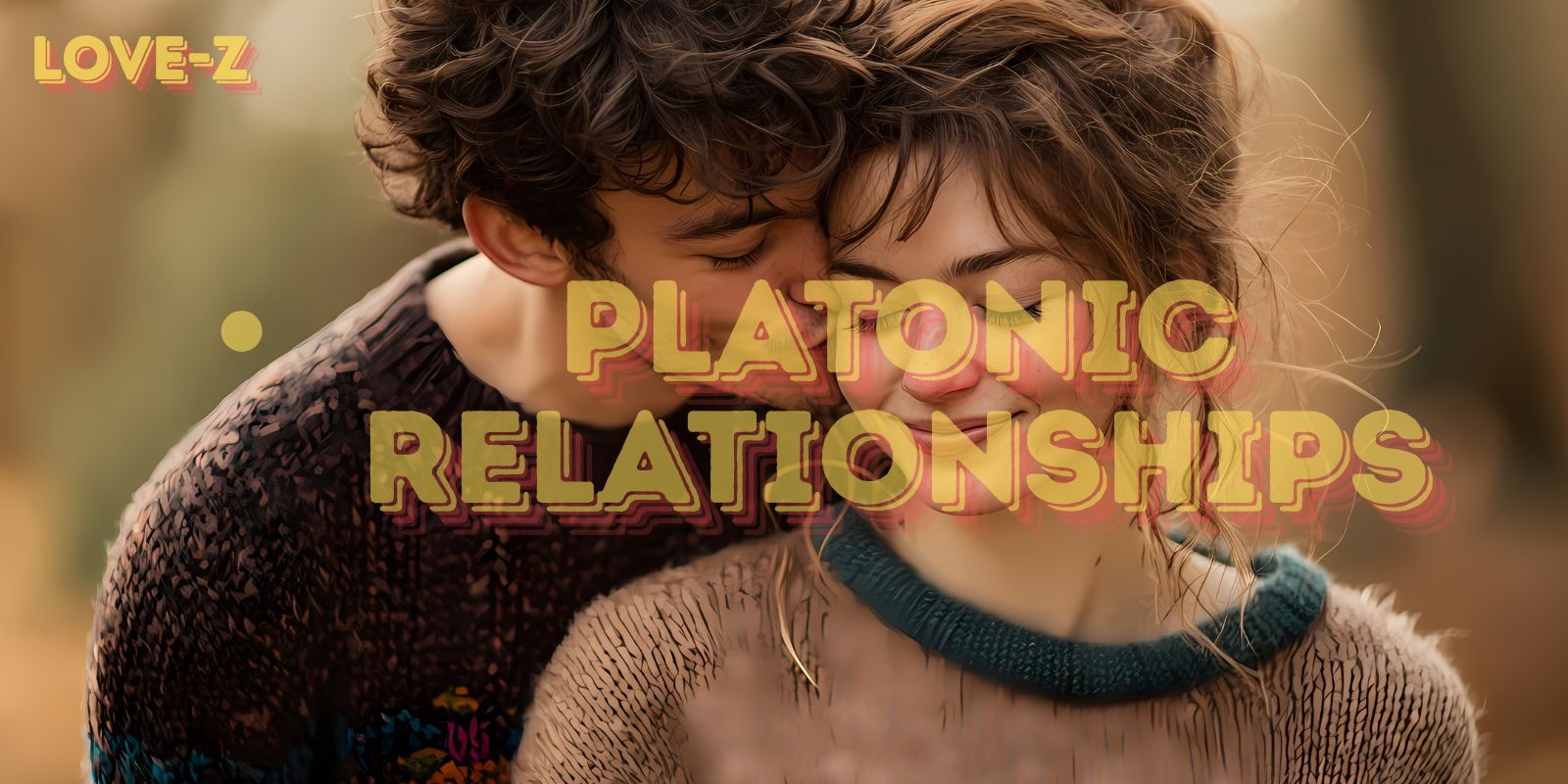Did You Know Platonic Relationships are Less Stressful?
Why are platonic relationships less stressful? Platonic Relationships are less stressful because they lack romantic expectations, jealousy, and emotional pressure. They promote freedom, mutual respect, and authentic connection, offering emotional support and stability without the complications of romance.
So just why are platonic relationships less stressful? While romantic partnerships often dominate conversations about relationships, platonic bonds hold equal—if not greater—importance. These friendships form the foundation of emotional balance, mutual respect, and genuine connection.
Whether you’re single, partnered, or somewhere in between, embracing the power of platonic connections can enhance your life in countless ways. Let’s explore why these bonds bring calm, joy, and emotional stability—and how nurturing them can lead to a more fulfilling existence.
Table of Contents
- A Quick Word About Platonic Relationships
- 10 Reasons Why Platonic Relationships Are Less Stressful
- Why Platonic Relationships Are Less Stressful — Bottom Line
- FAQs About Platonic Relationships

A Quick Word About Platonic Relationships
The absence of romance defines a platonic relationship. One might form a purely platonic connection with a best friend, coworker, or gym partner—without any romantic or sexual attraction. These bonds come with fewer expectations and often feel more natural and enduring.
As psychologists point out, there’s no fear of “breakups” in platonic friendships, which makes them emotionally safer and more stable. They allow you to express your authentic self, explore new experiences, and grow—without the weight of romantic demands.
10 Reasons Why Platonic Relationships Are Less Stressful
1. No Romantic Expectations
Platonic relationships remove the pressure of romantic ideals. There’s no need for grand gestures, perfect chemistry, or constant validation. Instead, these friendships thrive on ease and acceptance. For some, this relaxed emotional exchange feels just as fulfilling as when they hire an escort for companionship—without any strings attached.
Without the weight of romance, people can be fully present in their friendships. They listen more deeply, laugh more freely, and connect more genuinely. This absence of romantic performance allows both individuals to nurture emotional safety and trust—a foundation that often lasts far longer than most romantic pursuits.
2. Less Drama
With no jealousy or romantic stakes, platonic bonds naturally experience fewer emotional ups and downs. They focus on shared experiences and lighthearted fun, creating a calm, drama-free space for connection.
Because there’s no competition for affection or fear of betrayal, friends can communicate openly without tiptoeing around emotional landmines. This stability makes platonic relationships a haven of honesty and laughter, where misunderstandings are resolved quickly and compassion replaces confrontation.
3. No Pressure to Impress
In platonic relationships, authenticity reigns supreme. You can be yourself—no filters, no performance. This genuine acceptance relieves emotional pressure and deepens the connection.
Unlike romantic relationships, where people often feel the need to present an idealized version of themselves, friendships allow vulnerability and imperfection. You can show up in your worst mood, share unfiltered thoughts, or laugh at your own quirks—knowing you’re valued for who you are, not how well you perform. This natural comfort reduces stress and builds a sense of true emotional belonging.
4. Emotional Support Without Romance
Friends offer emotional care that’s just as powerful as romantic love—minus the expectations. From celebrating wins to navigating tough times, platonic friends are an anchor of empathy and support.
Without romantic tension clouding communication, friends can focus purely on listening and uplifting one another. This creates a safe, judgment-free zone where emotions are respected and validated. Such honest emotional exchange strengthens mental well-being, reminding both individuals that genuine love doesn’t always need to be romantic to be deeply meaningful.
5. Freedom and Independence
Platonic relationships encourage individuality. You can nurture your ambitions, hobbies, and personal growth without negotiating every move. This autonomy fosters confidence and emotional peace.
Unlike romantic partnerships that often require compromise in time, lifestyle, or priorities, friendships thrive on mutual respect for personal space. You can chase goals, explore passions, and evolve freely—while still having a supportive friend cheering you on. This sense of independence strengthens self-worth and reduces emotional strain, making platonic connections empowering rather than confining.
6. Broader Social Circle
Platonic relationships expand your social horizons. They introduce new people, ideas, and experiences—creating a richer, more fulfilling life. These diverse interactions reduce loneliness and stress.
Unlike romantic relationships that often become exclusive or time-consuming, friendships naturally branch out into wider networks. Each friend brings their own circle, exposing you to different perspectives, cultures, and lifestyles. This diversity not only enhances social confidence but also builds emotional resilience, as you’re supported by multiple meaningful connections rather than relying on a single source of companionship.
7. Lower Expectations
Friendships aren’t burdened with the heavy expectations that often accompany romance. With simplicity and mutual respect, they cultivate joy and ease.
There’s no constant need for reassurance, grand gestures, or commitment milestones in platonic bonds. Instead, the focus rests on genuine connection and shared enjoyment. This relaxed rhythm allows friendships to flourish naturally, free from the pressure to meet idealized standards. The result? A relationship that feels lighter, more balanced, and truly fulfilling—built on trust, not obligation.
8. No Fear of Breakup or Divorce
There’s comfort in knowing platonic friendships rarely face abrupt endings. Without the fear of emotional fallout, individuals enjoy a sense of security that promotes inner calm.
While romantic relationships can sometimes feel fragile—haunted by the threat of conflict or separation—platonic bonds often stand the test of time. Friends may drift apart naturally, but the emotional foundation remains intact and easily rekindled. This lasting stability nurtures peace of mind and emotional safety, allowing both individuals to invest in the relationship without anxiety or fear of loss.
9. Shared Interests and Activities
Friendships often revolve around shared passions—sports, gaming, books, or travel. This organic bonding fosters connection and positivity, offering an effortless route to emotional wellness.
Engaging in activities together strengthens trust and creates lasting memories. Whether it’s spontaneous adventures or simple daily routines, shared experiences reinforce the sense of belonging and companionship. These moments of joy and teamwork not only reduce stress but also build emotional intimacy—proving that the best relationships are often formed through mutual enjoyment, not romantic attraction.
10. Less Pressure to Define the Relationship
Platonic relationships thrive in freedom and flexibility. There’s no need to label or overanalyze the bond—allowing it to evolve naturally and comfortably.
Without the constant need to define “what we are,” friendships flow with ease and authenticity. This openness removes emotional strain and lets both individuals simply enjoy the connection for what it is—genuine companionship. By removing labels and expectations, platonic relationships encourage spontaneity, deeper understanding, and lasting harmony built on mutual trust and emotional clarity.
Why Platonic Relationships Are Less Stressful — Bottom Line
Platonic relationships provide the emotional depth of companionship without romantic tension. They balance emotional support, independence, and joy—offering the serenity modern life often lacks. By cultivating strong platonic bonds, you create a safe, enriching emotional foundation that reduces stress and enhances overall well-being.
As a relationship coach, I’ve often observed that friendships teach us the truest form of connection—one built not on passion, but presence.
FAQs About Platonic- Relationships
What is a platonic relationship, and how is it different from a romantic one?
A platonic relationship is a deep, non-romantic bond based on trust, respect, and shared understanding. It lacks physical intimacy and romantic exclusivity, focusing instead on companionship and emotional connection.
Can a platonic relationship exist between people who are attracted to each other?
Yes, it can—if both individuals communicate openly and maintain clear boundaries. Transparency and mutual respect prevent emotional confusion and preserve the friendship’s integrity.
How can you maintain a platonic friendship without it becoming romantic?
Keep boundaries clear, avoid flirtatious dynamics, and communicate honestly. Prioritize shared experiences and emotional respect rather than intimacy or romantic gestures.
Can platonic relationships be as fulfilling as romantic ones?
Absolutely. Many people find their deepest joy and stability in platonic bonds. These friendships can offer emotional richness, loyalty, and comfort that rival romantic love.
Can a platonic relationship turn into a romantic one?
Yes, sometimes platonic bonds evolve naturally into romance. The key is open communication—ensuring both parties share the same feelings to preserve respect and trust.



